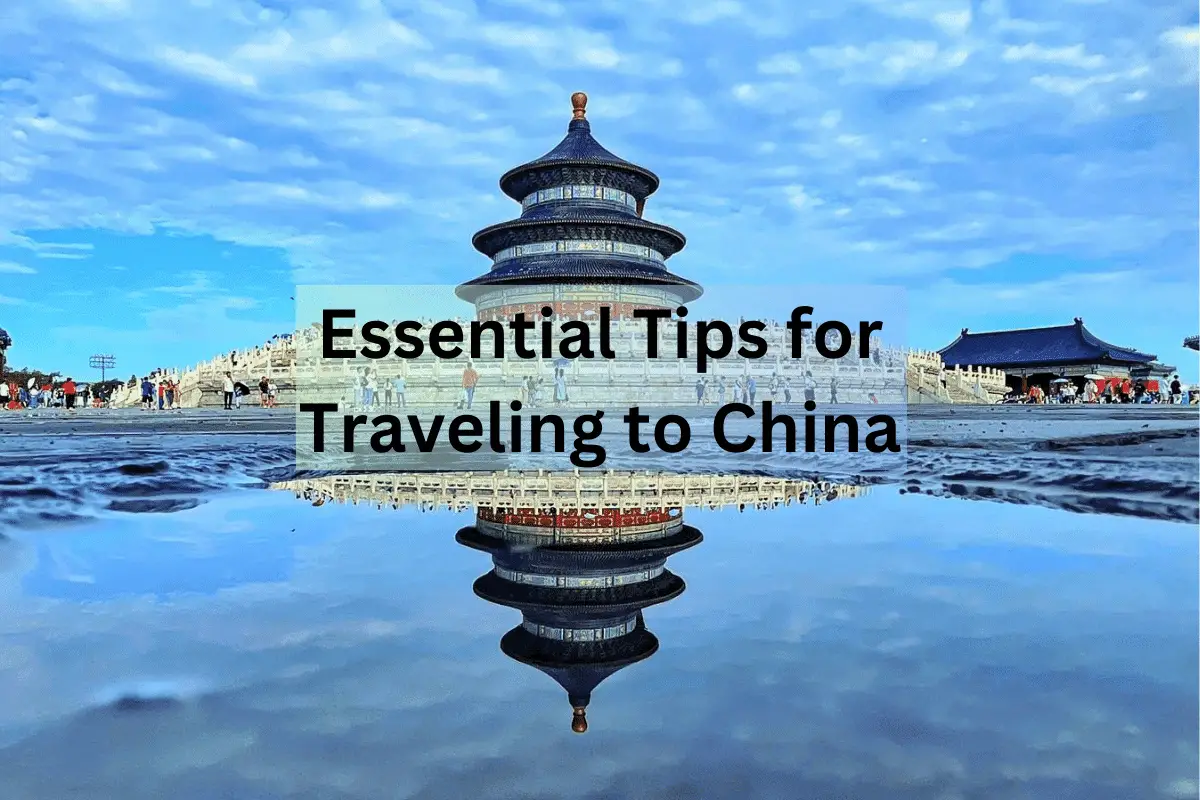Are you planning a trip to China? Being prepared and knowing what to expect can be key to an unforgettable experience.
In this article, you'll learn useful tips about visas, trip planning, packing, language barriers, tickets and lodging, currency and payments, transportation, authentic food, local customs, and more.
I'll also share insider tips that only locals know!
This guide will be updated regularly to keep the information current and accurate.
Whether you're a first-time visitor or experienced traveler, the guide will help you avoid pitfalls and get the most out of your trip to China.
Let's get started!
Important !
COVID Restriction: Although China has relaxed its COVID controls now, you still need a negative antigen test within 48 hours.
1. Visa Requirements for China
1.1 Tourist visa for foreigners entering China – L visa. Here is my newest guide on obtaining a China travel visa.
1.2 Most foreign nationals need a visa to enter China, including citizens of the US, UK, EU, and Canada.
1.3 China also offers 24 hour, 72 hour and 144 hour transit visa exemptions. This means you can stay in China visa-free for up to 6 days, but you'll be restricted to certain cities. Check here for more.
1.4 Most nationalities can transit through Hong Kong and Macau without a visa, including the US, UK, Canada etc.
1.5 If you enter Hainan with a tour group, you can get a 30 day visa exemption and travel freely within Hainan province.
If you need fast visa service, you can try this company. They have extensive customer satisfaction.
Get a China visa quickly
No queuing
Save a lot of time
If you make a purchase, we may earn a commission at no extra cost to you.
2. Internet and App Restrictions
2.1 China has a very strict internet censorship system called The Great Firewall. This means sites and social apps like Google, Facebook, Twitter, Instagram and YouTube won't be directly accessible while in China.
2.2 You'll need a VPN to get around the Great Firewall. You can also purchase data roaming, but it's not as stable or affordable as a VPN, so I don't really recommend it.
Compared to other VPNs, Astrill VPN always provides 99% reliability in China. I know, it's embarrassing when your VPN fails at critical moments.
Wallet friendly pricing
20 years of reputation trust
Fast and hassle-free claims
If you make a purchase, we may earn a commission at no extra cost to you.
You can also check out my article on the best VPNs in China.
2.3 A local SIM card is a must in China (important!). You'll need it to receive text messages for booking tickets, hotels, taxis etc. I suggest buying one in advance on Amazon. If you forget, you can also purchase at the airport with your passport.
2.4 Recommended Apps in China:
- WeChat(Must have): Use it to message friends or your tour guide. You can also use it for payments, booking tickets, transferring money, location sharing, and more. Wechat now supports international card payments.
- AliPay(Must have): A mobile wallet can be used for buses, metro, taxis, food orders, train/flight tickets etc. Alipay is very convenient for metro and bus rides.
- Itranslate: A powerful all-in-one translation app with camera and voice translation. A huge help for translating menus and chatting with Chinese people.
- Google Translate: Similar to Itranslate, but requires a VPN.
- Trip.com: For booking flights, train/high-speed rail tickets, and hotels. No Chinese number required. It is easier to use in China than Booking.com.
- Baidu Map: A maps app that works without VPN. Google Maps requires VPN but I recommend Baidu Map- it's more accurate in China.
- DIDI: A ride-hailing app like Uber.
- Meituan: For ordering takeout/delivery.
- Dianping: For finding restaurants and reviews.
- Xiaohongshu: Like Instagram – for real user tips on travel and food.
3. Planning a Trip To China
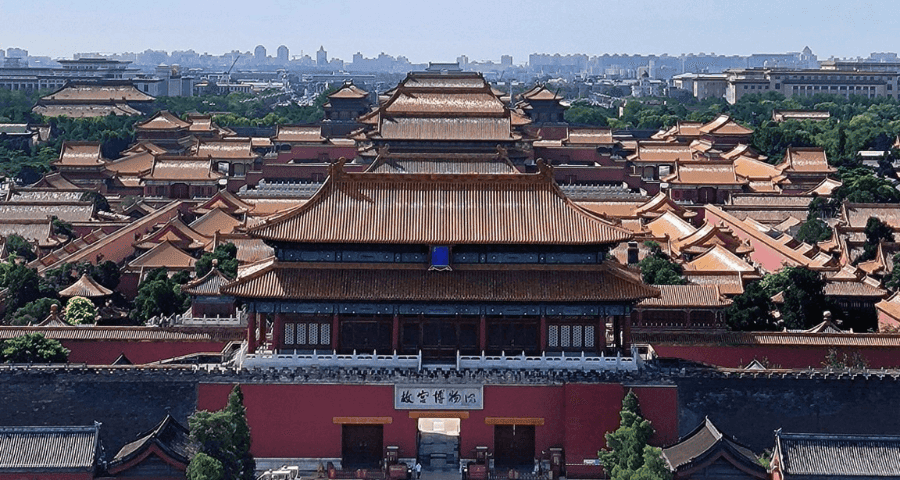
3.1 Times not recommended for visiting China:
- Chinese New Year: Usually sometime between late January to February, with 7 days of public holidays, but massive movement of people lasts for half a month.
- Labor Day in China: May 1 every year, with 5 days of holidays.
- China's National Day : October 1 every year, with 7 days of holidays.
During these holidays, lots of Chinese travel to tourist spots or go home to visit family, so train tickets can be hard to get. Tourist areas also get very crowded.
But for Chinese New Year, if you come early, you can see colorful celebrations like lion dances, dragon dances, and firecrackers.
3.2 Best time to visit China:
- Spring (April and May) and Autumn (September and October): Not too hot or too cold, very comfortable temperatures, and stable weather without sudden heavy rains.
- Other time: In general, any time is good except the crowded holiday times mentioned above. China is so vast, there's always beautiful scenery awaiting you no matter when you go.
3.3 Best destination:
- Beijing: China's current capital with the majestic Great Wall and enormous Forbidden City palace complex of ancient emperors. Attractions: The Great Wall, Forbidden City, Temple of Heaven, Summer Palace, Tiananmen Square, etc.
- Xi’an: Home to the tomb of Qin Shi Huang, one of China's greatest emperors. Also many other famous historical sites like: The Terracotta Warriors, Xi'an City Wall, Daming Palace, Giant Wild Goose Pagoda, etc.
- Shanghai: China's most international and prosperous city. Fun attractions like the Bund, Oriental Pearl Tower. Also cruise tours and Shanghai Disneyland.
- Hangzhou: Famous water town in China's Jiangnan region, and headquarters of Taobao, China's largest e-commerce platform. You can experience a perfect blend of modern technology and ancient history here. Also close to Suzhou and Yangzhou for easy day trips.
- Guilin and Yangshuo: Beautiful natural scenery and countryside. Boat tours on the Li River or biking and hiking in Yangshuo.
- Chengdu: Home of pandas and famous for its cuisine. Get up close with adorable pandas and enjoy hot pot and other Sichuan dishes.
- Zhangjiajie: Majestic mountains and incredible rock formations like Heaven's Gate Mountain.
- etc
4. Get to/around China
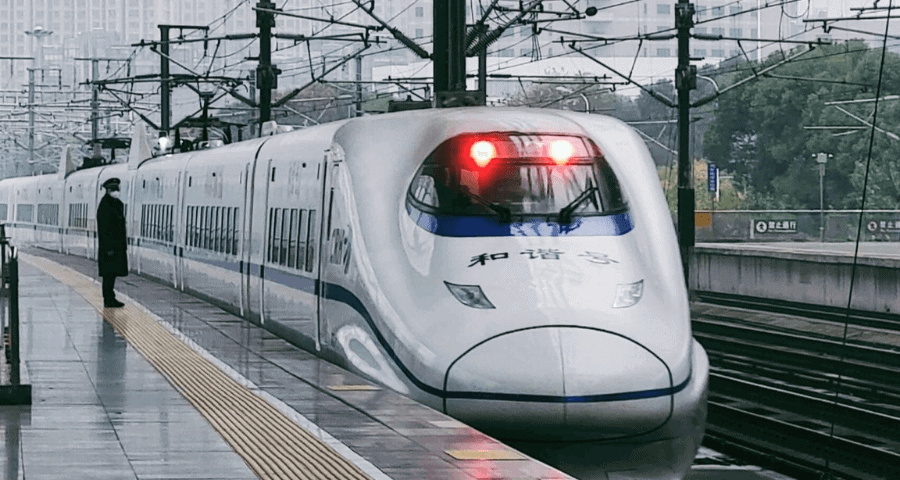
4.1 Flying
Flying is the most convenient and efficient way. Many international flights now fly directly to China. You can also fly between cities within China.
4.2 Trains and High-Speed Rail
China has the most advanced train system so you can reach almost any city by rail. When I have time, I like taking regular “green train”s with green paint. (The experience may not be great since it can be crowded.)
I can enjoy views along the way from the window. Especially the Xining to Lhasa route with snowy mountains and vast grasslands.
High-speed rail mostly connects major cities, like Beijing-Shanghai, Shanghai-Guangzhou, Guangzhou-Shenzhen etc.
The high-speed rail experience is great – super fast yet almost no noise or shaking.
4.3 Subway
Subways in major Chinese cities are also very developed, with service counters at every station to help with tickets.
The subways are bright and clean. Everyone goes through security scans to enter, and there are English signs everywhere, making it foreigner-friendly.
4.4 Bus
Buses are the most traditional transportation. But they take a lot of time and often get stuck in traffic, especially during rush hours. I don't recommend buses for tourists.
4.5 Taxi
- Traditional taxis are easy to spot with their “Taxi” roof lights. But traditional taxi drivers rarely speak English, so you may face communication issues.
- I recommend using the DiDi ride-hailing app, like Uber.
4.6 Bicycle
In big cities you'll see lots of green, blue or yellow shared bikes with uniform paint. They're very cheap, just pennies for an hour. I enjoy leisurely biking at sunset on city streets.
5. Tickets and Accommodation
5.1 For booking trains, flights, hotels etc., Trip.com is the best app for foreigners visiting China. It has an English interface, takes international cards and PayPal, and has good customer support. Highly recommend it.
5.2 Book attractions: Many attractions in China require advance booking. You'll need to follow their official WeChat account and book through it.
5.3 For lodging(Important!): Unfortunately as a foreigner, you can't just pick any hotel in China to stay at. You need to find hotels on Trip.com that accept foreigners and book through there. Luckily in big cities there are many such hotels with good facilities and service.
5. Cash and payments
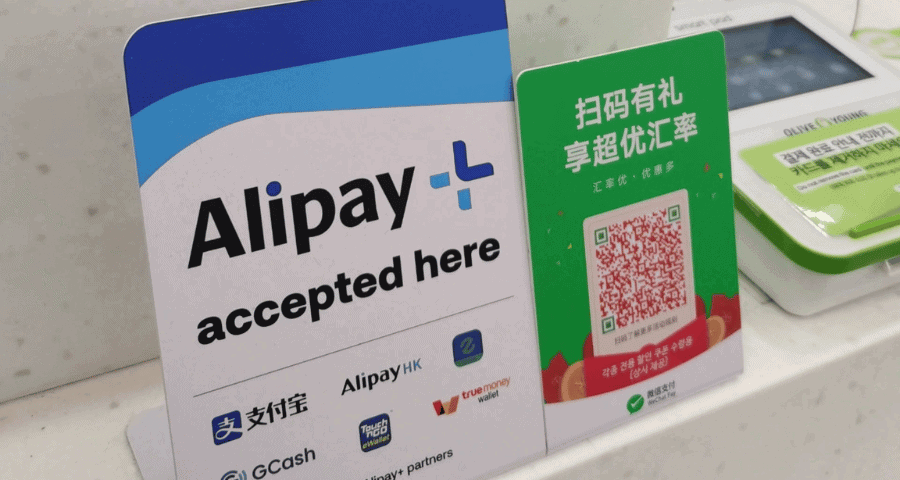
5.1 USD is rarely used in China, international cards have limits, and China is almost cashless. You'll need to set up Chinese payment apps – WeChat Pay and Alipay. Luckily they accept international cards and are easy to use.
5.2 WeChat Pay is preferred – some remote small shops may not have Alipay but almost all accept WeChat Pay. Check my latest guide to link your card to WeChat.
5.3 Alipay is the second option – you can also set it up if you plan to visit China long term or frequently. Check out my latest tutorial on setting up and using Alipay.
5.4 Some cash is also good to have in case your phone dies or loses signal. Carrying large amounts of cash into China is prohibited. You can exchange a small amount of RMB before arriving. If you need to withdraw RMB in China, look for major banks like Bank of China, ICBC.
6. Language and Communication
6.1 The percentage of English speakers is low in China. Only young people in big cities can speak some English.
6.2 Knowing some basic Mandarin will be very helpful. nihao = Hello , xie xie = Thank you; I recommend learning these two words – if you need help or want to meet new people, you'll get a friendly response from Chinese.
6.3 Recommended Chinese Language courses — echineselearning, Chinese translate App — Itranslate
6.4 Keep any receipts, business cards or booking confirmations with addresses/names. When you need to get somewhere, cab drivers or passersby can help just by showing them.
6.5 Ask the police for help. China has a top-notch police force with presence at tourist attractions and on the streets. You can easily get help from them. No need to be afraid, Chinese police are very friendly.
7. Packing for China
7.1 Travel Adaptor
China uses 220V which is within range for most electronics. You don't need a voltage converter but you do need a travel adapter. You can buy one here.
7.2 Powerbank
China heavily relies on phones for payment, tickets, navigation, etc. You definitely don't want your phone dying and leaving you stranded! Make sure to get a high capacity power bank.
7.3 Noise Cancelling Headphones
Good noise-cancelling headphones help you stay comfortable on planes and trains. With the large population in china , don't expect people to stay quiet. Get here.
7.4 Carry tissues with you
Bathrooms at attractions or train stations may lack tissues, although this is rare in big cities. But it's good to keep a pack on you just in case.
7.5 Some medicine and antibiotics
Medicine for diarrhea is important as you may have trouble adjusting to the vast cuisine, especially spicy Sichuan and Hunan food.
8. Safety and Health
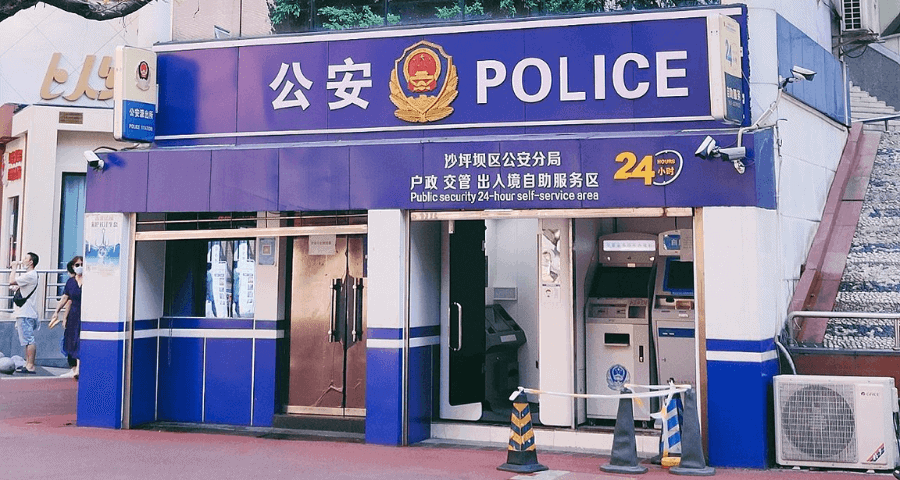
8.1 China is one of the safest countries in the world
Thanks to strict gun control and cracking down on crime, China is very safe. In big cities, you can walk alone at night without danger or police harassment. According to the World Bank, China's homicide rate in 2018 was just one per 100,000 people.
8.2 Watch out for petty theft
Pickpockets are rare now, you don't have to worry about your phone being stolen on the subway. But some opportunists may still eye your belongings – keep them in sight or properly secured.
8.3 Be aware of scams
Chinese find foreigners novel and often ask for pictures, which is usually fun and safe. But beware invitations to bars or restaurants – scammers may bring you to illegal venues, leave you with huge bills, and disappear.
8.4 Ignore people who try to sell you stuff
At airport/train station exits or attractions, beware people soliciting you. They often overcharge or provide poor service to unfamiliar tourists – we locals call them “pig butchers”.
8.5 Say no to erotic services
Erotic activities are illegal in China and police often conduct raids. If caught, you'll be deported.
8.6 Don't drink tap water directly in China
Chinese tap water comes straight from the utility untreated. Locals never drink it directly – make sure to boil it first or just buy bottled water.
8.7 Get travel insurance if you can
You never know when an accident might happen – thankfully travel insurance can be your strong backup.
For travel insurance, you can trust World Nomads – I've had great experiences with them.
Wallet friendly pricing
20 years of reputation trust
Fast and hassle-free claims
If you make a purchase, we may earn a commission at no extra cost to you.
9. Authentic local foods in China
9.1 China has a massive variety of cuisines
The modern Eight Cuisines of China are Anhui Cuisine, Guangdong Cuisine, Fujian Cuisine, Hunan Cuisine, Jiangsu Cuisine, Shandong Cuisine, Sichuan Cuisine, and Zhejiang Cuisine.
No matter where you travel in China, your taste buds will be delighted.
9.2 Look forward to surprises at hole-in-the-wall restaurants
Some of the most authentic and delicious local foods come from humble mom-and-pop shops. If you traveling independently, ask cab drivers for food tips – they're often local experts.
9.3 Book a food tour
The easiest hassle-free way to explore local cuisine is joining a food tour. Experience authentic local life and taste truly native foods.
Explore authentic local culture and cuisine
Local-led adventures
Genuine wonderful experiences
If you make a purchase, we may earn a commission at no extra cost to you.
10. The cost of a trip to China
This is just a rough estimate, since luxury travel versus budget travel makes a huge difference in cost.
10.1 Main cost is flights – summer is pricier, winter cheaper. If planning a China trip, best to book flights early on Booking.com for discounts.
Here is approximate cost for two people traveling in China for 7 days:
| ✈️ Average Flight Cost | $1,600 per person |
| 🛎️ Average Accommodation Cost | $70 per night |
| 🍽️ Food, Drink & Activities | $80 per person, per day |
| 🚕 Transportation | $20 per day |
| 💲 Total Cost | $4,950 |
11. Cultural Etiquette to Avoid Faux Pas
11.1 Don't stick chopsticks straight up in rice
It looks like incense burning for the dead, which Chinese only do for ancestor worship and funeral ceremonies.
11.2 You don't need to tip
Chinese don't have a tipping culture. If you suddenly give them money, they'll be confused and may give it back. If satisfied with a server, say thank you in person – they'll appreciate it.
11.3 Take off your shoes
Some temple attractions require removing shoes before entering. Follow the Chinese and remove shoes if you see them doing so. Also, Chinese never wear outdoor shoes inside homes.
11.4 Loud chewing and slurping are allowed
It shows you enjoy the food and hospitality, but don't open your mouth while chewing loudly.
11.5 Use your index finger properly
Pointing at someone with your index finger is considered rude. Also don't directly point at Buddha statues, sculptures, or portraits of famous people when photographing. It's disrespectful.
12. Other Helpful Tips for Traveling in China
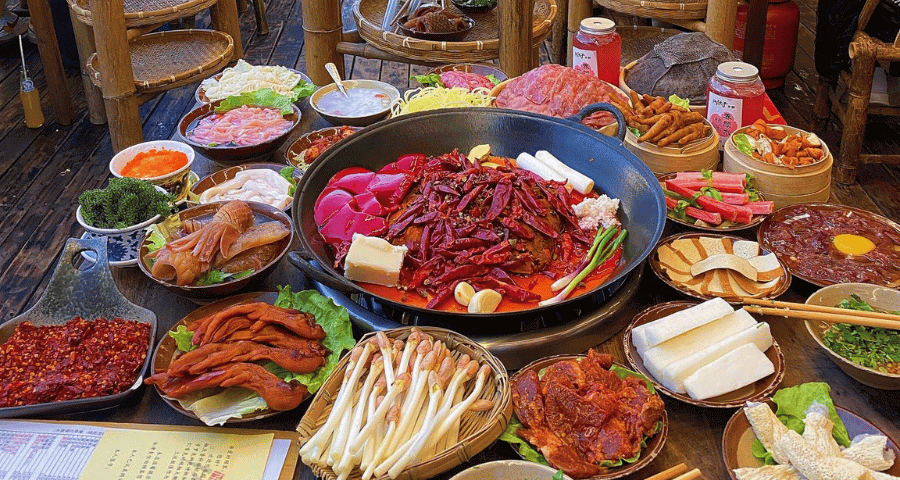
12.1 Drugs are illegal in China
All drugs including cannabis are strictly illegal in China and hard to obtain. But watch out for addictive e-cigs laced with drug-like chemicals. Don't take anything passed to you at bars.
12.2 China does not restrict alcohol sales
Buying alcohol freely is allowed in China. Don't miss trying Chinese baijiu – it's a unique experience.
12.3 Don't be shocked that some Chinese eat dog meat
Guilin is a beautiful tourist city but also has very traditional folk culture. You may see some shops selling dog meat on the street. If it bothers you, just leave quickly.
12.4 Many Chinese dishes contain animal offal
Chinese offal dishes can be delicious, like the famous Sichuan hotpot containing pork stomach, duck blood, duck intestines etc. If you can't accept it, you'd better ask clearly when you order.
12.5 Vegetarian travel is possible
Big cities like Beijing, Shanghai have many fully vegetarian restaurants – search on Dianping app. Or just specify your diet everywhere.
12.6 Be prepared for squat toilets in China
Western sit-down toilets have low availability – only in big malls and upscale hotels/restaurants. You'll need to get used to squat toilets and bring tissue.
12.7 Don't worry about any apps or adult content on your device
Unless you're a spy, my friend, lol, you don't need to worry about customs officers checking your phone or laptop when entering or leaving China. No one cares about that stuff, even if you have lots of banned apps installed.
12.8 Watch out for taxi drivers – they may overcharge you
I mean traditional taxis that use the meter for fares. I've heard many real stories of them cheating foreign tourists, even Chinese tourists from other cities.
Here are some common scams:
- take long detours
- double or triple the price and give fake receipts
- secretly switch your cash for counterfeit bills and demand more
My suggestion:
1. If you encounter a scam, ask the police for help promptly.
2. Use the DiDi ride-hailing app – prices are transparent and strictly regulated.
3. You can also use Alipay for taxis.
